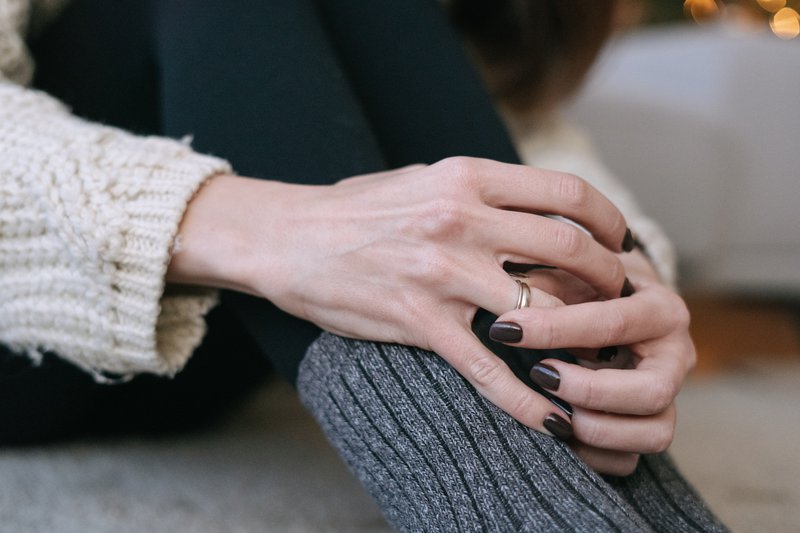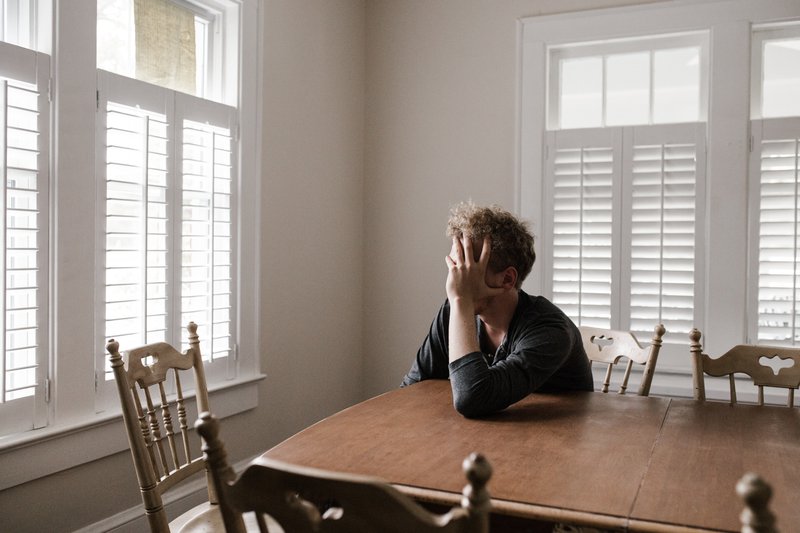And Just Like That tackles alcoholism
I’ve been enjoying watching And Just Like That, the latest iteration of the Sex and the City franchise. There’s a lot to think about with this new show, including its fresh—and much-needed—take on gender and race, as well as what it means to be a middle-aged woman trying to live her best life in our misogynistic, ageist society. One of the themes they’ve brought up is Miranda’s alcohol addiction.
In the first episode, we see her going into a bar at 10:45 in the morning, looking for fortification prior to starting her new class in human rights law. In episode two, we see her demanding a stiff drink, just before the funeral of Carrie’s late husband, and in episode three, Charlotte finds three small empty bottles of liquor tucked away in Miranda’s backpack.

Sometimes, our loved ones are equally in denial
Interestingly, when Charlotte brings it up to Carrie, it’s brushed off with “we all have good reason to drink, these days,” and essentially, Carrie asks Charlotte to disregard it. This can be excused because Carrie is clearly out of her mind with grief, but it makes me wonder how Miranda’s drinking will be handled in subsequent episodes.
Miranda is in a midlife transition. She has ditched corporate law and she wants to do something more meaningful. Her marriage has been sexless for years and she wonders if she and her husband are merely roommates who share a child and a dessert ritual.
I think that the show is providing some very realistic context for why the character of Miranda might be drinking, these days. It’s not uncommon for people to turn to self-medicating with alcohol when we’re unhappy but it’s too threatening to examine the source of our unhappiness.

Facing the source of our unhappiness can be excruciatingly difficult
Miranda developed a crush on Che Diaz, Carrie’s podcast boss and a non-binary person. Is Miranda struggling with her sexuality? Quite possibly. The expression on her face after Che shot-gunned some pot smoke into her mouth was a priceless look of exquisite discomfort. It looked like she didn’t want to acknowledge what she was feeling—or desiring—at that moment.
In a subsequent episode, Che dropped in at Carrie’s apartment when Miranda happened to be there helping Carrie after her hip surgery. While Carrie was sleeping, Che and Miranda got drunk on a bottle of tequila and had loud sex in the kitchen. Carrie woke up and needed help getting to the bathroom but she wasn’t going to acknowledge what was going on in the other room.
Carrie ended up wetting the bed while Miranda was having a drunken orgasm in the kitchen. Later, Carrie confronted Miranda for abandoning her in her time of need and for putting her in an incredibly awkward position. Miranda broke down, saying that she hated her life and that Che was the best thing to have happened to her in ages. At the end of the episode, she recognized her problem and poured all her liquor down the sink.
This was a much quicker, easier path to recovery than most people encounter. Miranda didn’t have the shame that most addicts have when their selfish, insensitive behaviour hurts their loved ones. She didn’t have to hit rock-bottom like many do before they’re ready to change. In this way, the show offered a rather sunny view of alcoholism; however, it did give some interesting context for Miranda’s drinking.
Why do we turn to addiction? We use it to shove down feelings, urges, and memories that we consider intolerable. We use it to numb our trauma, minimize our anxiety, or block out our awareness of desires that are too uncomfortable for us to face.
Miranda is unhappy with her life. She has questions about what she wants to do with her time and who she wants to be intimate with. She drinks, it seems, to avoid facing some of these awkward truths.

It’s super-hard to leave even an amicable bad marriage
It’s incredibly hard to leave a long marriage—even when it’s an abusive one, and Miranda’s is definitely not one of those. We, humans, are creatures of habit, and extricating ourselves from a life we’ve been living for decades is incredibly challenging. Miranda’s husband is a good guy. They don’t fight. He’s going deaf and she feels bad for him. All that makes it even more difficult for her to contemplate a change. And their son is still living at home, exploring his own love life. She doesn’t want to abandon him, either.
We drink because we want to bury our discomfort and distract ourselves from the truth, but then we add a new problem to the mix—alcohol misuse. We end up experiencing consequences for our drinking behaviour in our personal lives, at school, and at work. I’m anticipating some of these consequences for Miranda in the next few episodes.

We should never judge someone for being an addict
It's easy to judge someone who has an obvious addiction, whether to alcohol, drugs, or overeating, but so many of us have addictions that we simply keep secret—even from ourselves. I was speaking to life coach and “hope evangelist,” Kathryn Greenberg in my Ruthless Compassion podcast the other day, and we were talking about how a lot of people have addictions that are less obvious.
Some of us are workaholics; others exercise to excess. Some of us are shopaholics and others spend hours each day gaming. Some addictions are socially acceptable—even idealized—like over-working and over-exercising, whereas some addictions are frowned upon, like drug use and alcoholism.
Alcoholism is an interesting case, because many of us are like Carrie, denying the warning signs in our loved ones, preferring to think that their drinking behaviour hasn’t actually become problematic.
I’m interested to see how And Just Like That handles Miranda’s drinking as the show progresses. I’m hoping that it uses the platform to open up an honest discussion about the role of addiction in our lives.
Unhappiness can hit us at any point, but it’s how we deal with it that matters. No-one should be ashamed that they’ve turned to addiction as a solution, but it’s not something we should ignore, either.
For anyone who’s grappling with alcohol misuse or any other addiction, for that matter, there’s a lot of help available, and it starts with facing our feelings. Behavioural change such as forced abstinence won’t work because it doesn’t address the root cause of our addictions. We need to get to the bottom of our dysfunctional behaviour and discover—and then heal—whatever pain it is that we’re using our addiction to deal with.

We needn’t be ashamed of our addictions
There’s no reason to be ashamed of our addictions—in fact, the shame perpetuates the behaviour because it makes it that much harder to recognize what we’re doing. When we can look at ourselves with compassion—ruthless compassion—we can face the truth about our addictions without self-criticism and we can let our self-love, and our desire for a better way of coping, motivate us to make the necessary changes.
Of course, overcoming any addiction isn’t easy, because there’s a physiological component involved. The brain chemical, Dopamine, is stimulated by any addictive behaviour, and then it intensifies our cravings. We will need help from trained professionals to successfully address the emotional and physical components of our addiction. There’s no shame in that, either. Everyone deserves a chance to heal.
______
Sign up here for my free biweekly wellness newsletter that brings you fresh, thought-provoking content.
Subscribe to my YouTube Channel where you’ll learn simple tips for taking the best care of yourself and your loved ones.
Tune in to my Ruthless Compassion Podcast where I go in-depth about topics like mental health, trauma, and loneliness.



